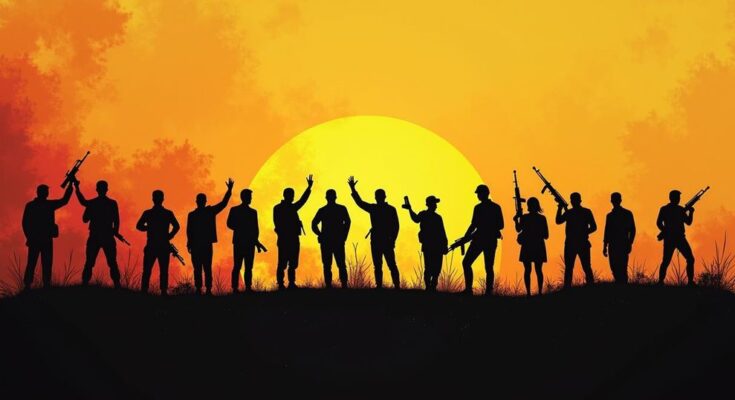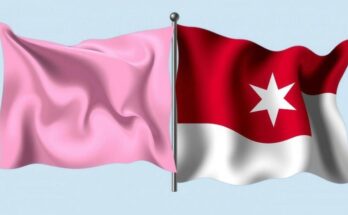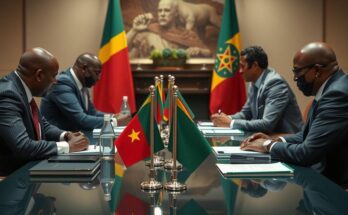Jordanians exhibit mixed opinions on Hezbollah but show overwhelming unity against Israeli attacks on Lebanon. Despite Hezbollah’s diminished support due to its role in Syria, many Jordanians plan to participate in upcoming protests driven by anger over Israeli military actions. The Jordanian government navigates complex diplomatic waters amidst rising public dissent.
Recently, Jordan has experienced a divided sentiment regarding Hezbollah, accompanied by a strong sense of unity in opposition to Israeli attacks on Lebanon. Throughout recent protests in Amman, there have been expressions of solidarity towards the Lebanese populace despite varying opinions on Hezbollah itself. Notably, while some Jordanians recall the robust support for Hezbollah during the 2006 conflict, the complex dynamics surrounding Hezbollah’s involvement in the Syrian civil war have dampened that support among many. During the weekend, the atmosphere was markedly subdued outside the al-Husseini Mosque, typically a hub for pro-Palestinian demonstrations. Local residents, such as Ahmed, a bookkeeper, attributed this calm to the despair caused by Israel’s military actions in Lebanon and the death of Hezbollah’s leader. However, there is a palpable anticipation for renewed protests following Friday prayers, reflecting a shift from shock to anger over Israeli aggression. Younger residents, including those of Palestinian descent, expressed their emotional ties to the protests. Hussein Amer noted that upcoming demonstrations would focus not solely on Hezbollah but on the broader implications of Israel’s actions across the region. Similarly, Mohammed Telwiy highlighted the rising sense of solidarity with Lebanon’s plight despite his personal reservations about Hezbollah as an organization. Regarding the official stance, Jordan’s Foreign Minister Ayman Safadi has been vocally critical of Israeli operations, labeling them as aggressive while simultaneously navigating the country’s diplomatic relations with Israel. This dichotomy has created a tension between governmental positions and public sentiment, particularly amongst those with Palestinian heritage, who feel strongly about the state of affairs in the region. In summary, while the opinion towards Hezbollah in Jordan remains complex and multifaceted, there is a clear and unifying condemnation of Israeli military action against Lebanon, prompting anticipated large-scale protests in the upcoming days.
The dynamics of Hezbollah’s support in Jordan are shaped by historical events, particularly the Lebanese group’s role in past conflicts such as the July War against Israel in 2006. At that time, Hezbollah enjoyed significant support among Jordanians. However, its involvement in the Syrian civil war has complicated perceptions, leading to a more divided opinion regarding the group. The current context includes reactions to Israel’s military actions in Lebanon, which have reignited public demonstrations and calls for solidarity with the Lebanese. This situation highlights the delicate balance the Jordanian government must maintain in its diplomatic relations with Israel amidst domestic pressures from its populace, many of whom are descendants of Palestinians affected by historical conflicts.
In conclusion, Jordanian society is depicted as sharply divided in its views on Hezbollah, yet strongly united in its condemnation of Israeli aggression toward Lebanon. This division underscores a broader regional sentiment regarding military interventions by Israel while fostering a nationalistic drive to support Arab solidarity against perceived external threats. The current climate suggests an upcoming surge in protests, indicating a revival of activism in response to regional tensions.
Original Source: www.aljazeera.com




